In May 2020, I presented some Active Directory security topics in a Trimarc Webcast called “Securing Active Directory: Resolving Common Issues” and included some information I put together relating to the security of AD Group Managed Service Accounts (GMSA). This post includes the expanded version of attacking and defending GMSAs I covered in the webcast.I …
Tag: Kerberos
Jan 01 2016
Attack Methods for Gaining Domain Admin Rights in Active Directory
There are many ways an attacker can gain Domain Admin rights in Active Directory. This post is meant to describe some of the more popular ones in current use. The techniques described here “assume breach” where an attacker already has a foothold on an internal system and has gained domain user credentials (aka post-exploitation). The …
Dec 31 2015
Cracking Kerberos TGS Tickets Using Kerberoast – Exploiting Kerberos to Compromise the Active Directory Domain
Microsoft’s Kerberos implementation in Active Directory has been targeted over the past couple of years by security researchers and attackers alike. The issues are primarily related to the legacy support in Kerberos when Active Directory was released in the year 2000 with Windows Server 2000. This legacy support is enabled when using Kerberos RC4 encryption …
Dec 14 2015
Unofficial Guide to Mimikatz & Command Reference
A new page on ADSecurity.org just went live which is an “unofficial” guide to Mimikatz which also contains an expansive command reference of all available Mimikatz commands. Screenshots, descriptions, and parameters are included where available and appropriate. This page includes the following topics: Mimikatz Overview Mimikatz & Credentials Available Credentials by OS PowerShell & Mimikatz …
Nov 17 2015
How Attackers Use Kerberos Silver Tickets to Exploit Systems
Usually Golden Tickets (forged Kerberos TGTs) get all the press, but this post is about Silver Tickets and how attackers use them to exploit systems. I have talked about how Silver Tickets can be used to persist and even re-exploit an Active Directory enterprise in presentations at security conferences this year. This post continues this …
Aug 07 2015
Kerberos Golden Tickets are Now More Golden
At my talk at Black Hat USA 2015, I highlighted new Golden Ticket capability in Mimikatz (“Enhanced Golden Tickets”). This post provides additional detailed on “enhanced” Golden Tickets. Over the past few months, I researched how SID History can be abused in modern enterprises. As part of this research, I reached out to Benjamin Delpy, …
Jul 15 2015
It’s All About Trust – Forging Kerberos Trust Tickets to Spoof Access across Active Directory Trusts
In early 2015, I theorized that it’s possible to forge inter-realm (inter-trust) Kerberos tickets in a similar manner to how intra-domain TGTs (Golden Tickets) and TGSs (Silver Tickets) are forged. Around the same time, Benjamin Delpy updated Mimikatz to dump trust keys from a Domain Controller. Soon after, Mimikatz gained capability to forge inter-realm trust …
May 07 2015
Windows 10 Microsoft Passport (aka Microsoft Next Generation Credential) In Detail
At the Microsoft Ignite conference this week, there are several sessions covering Windows 10 features. One of biggest changes in Windows 10 is the new credential management method and the related “Next Generation Credential”, now named Microsoft Passport. There hasn’t been much information on how the new credential system works, so I challenged myself to …
Dec 15 2014
Detecting MS14-068 Kerberos Exploit Packets on the Wire aka How the PyKEK Exploit Works
MS14-068 References: AD Kerberos Privilege Elevation Vulnerability: The Issue Detailed Explanation of MS14-068 MS14-068 Exploit POC with the Python Kerberos Exploitation Kit (aka PyKEK) Exploiting MS14-068 Vulnerable Domain Controllers Successfully with the Python Kerberos Exploitation Kit (PyKEK) This post shows the packet captures I performed using WireShark on the Domain Controllers during stage 1 and …
- 1
- 2

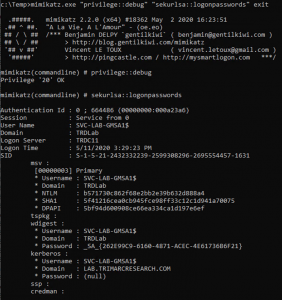
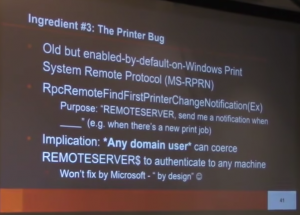
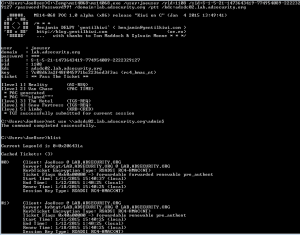
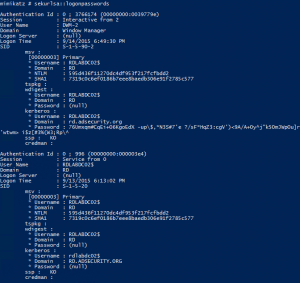

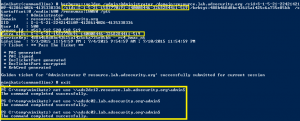
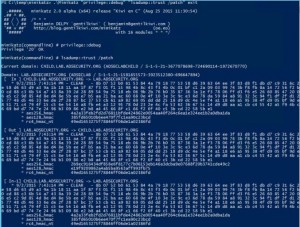
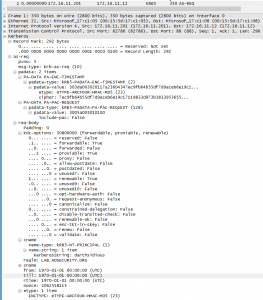
Recent Comments